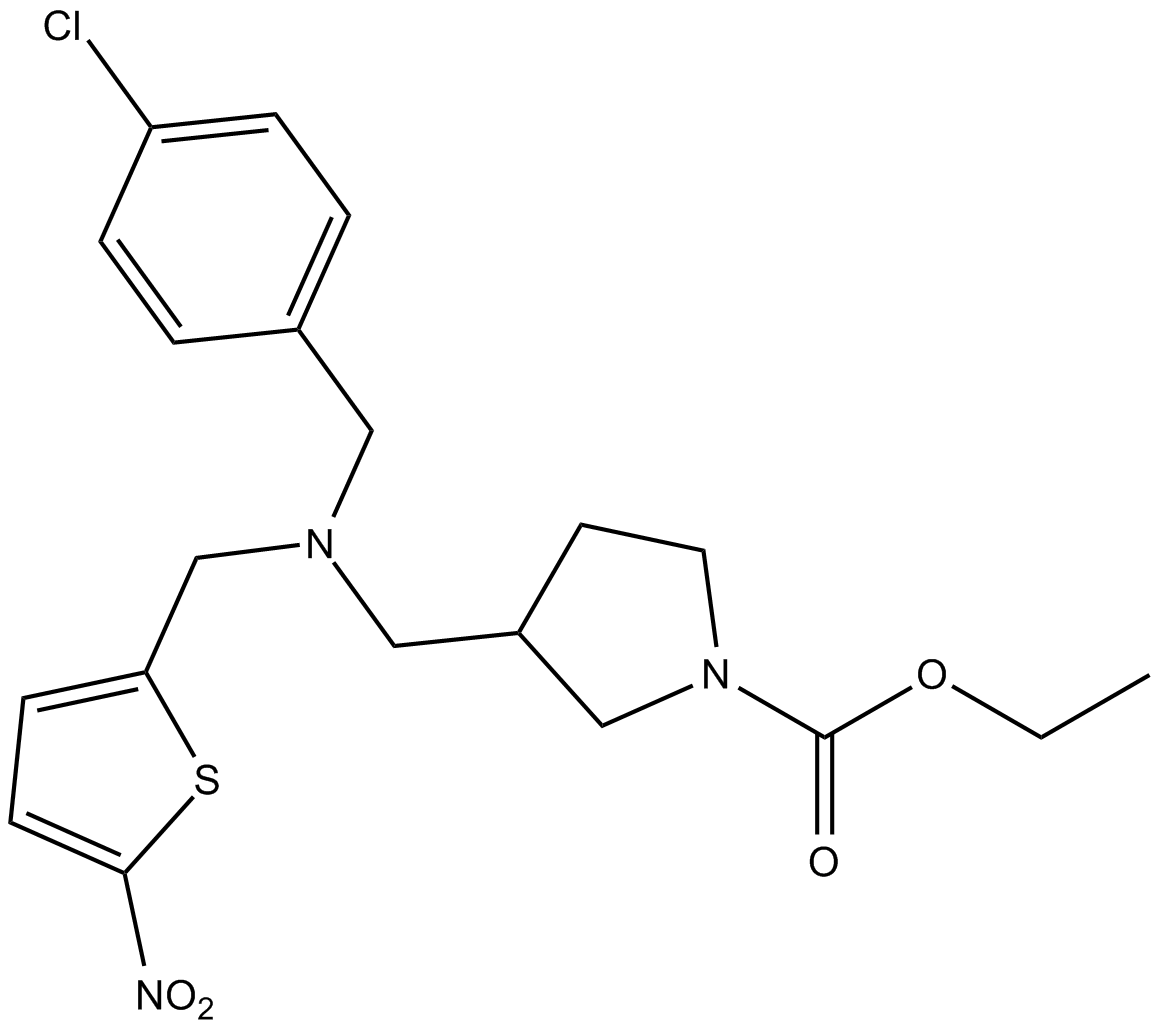SR9009 (Synonyms: REV-ERB Agonist II) |
| Catalog No.GC12035 |
SR9009 is a synthetic REV-ERB agonist used for treatment with metabolic diseases
Products are for research use only. Not for human use. We do not sell to patients.

Cas No.: 1379686-30-2
Sample solution is provided at 25 µL, 10mM.
SR9009 is a synthetic REV-ERB agonist used for treatment with metabolic diseases such as obesity, bipolar, anxiety and depressive disorders.[1]
In vitro experiment it demonstrated that treatment with 10µM of SR9009 induced obvious apoptosis in SCLC cells.[1] In vitro, treatment with 0 µM, 2.5 µM, 5 µM, or 10 µM of SR9009 cardiomyocytes showed no difference in hypoxia-induced cell death versus vehicle-treated controls. SR9009 treatment also did not significantly rescue cardiomyocyte cell death under any conditions.[2] Treatment with 10 μM of SR9009 for 2 days reduced the viability of wild-type mESCs in a dose-dependent manner. And SR9009 also had strong metabolic effects on mESC mitochondria, decreasing both their stimulated and basal.[3] SR9009 had a cytotoxic effect on tumor cells from brain, leukemia, breast, colon and melanoma at the 20 µM concentrations.[5]
In vivo, LPS-induced sepsis mice were treated with 50 mg/kg SR9009, the pathological lesions such as hemorrhage and edema in the lung tissue and the infiltration of inflammatory cells was obviously decreased.[4] In vivo efficacy study it shown that treatment with 100 mg/kg of SR9009 orally reduced weight gain as well as less severe hyperlipidemia and hepatic steatosis as compared to the control group. However, SR9009 gavage had no effect on the expression of lipogenic genes in the liver, TAG synthesis genes in the WAT, and genes involved in fatty acid oxidation in the skeletal muscle. [6]
References:
[1]. Shen W, et al. SR9009 induces a REV-ERB dependent anti-small-cell lung cancer effect through inhibition of autophagy. Theranostics. 2020 Mar 15;10(10):4466-4480.
[2]. Reitz CJ, et al. SR9009 administered for one day after myocardial ischemia-reperfusion prevents heart failure in mice by targeting the cardiac inflammasome. Commun Biol. 2019 Oct 3;2:353.
[3]. Dierickx P, et al. SR9009 has REV-ERB-independent effects on cell proliferation and metabolism. Proc Natl Acad Sci U S A. 2019 Jun 18;116(25):12147-12152.
[4]. Griffin P, et al. Circadian clock protein Rev-erbα regulates neuroinflammation. Proc Natl Acad Sci U S A. 2019 Mar 12;116(11):5102-5107.
[5]. Sulli G, et al. Pharmacological activation of REV-ERBs is lethal in cancer and oncogene-induced senescence. Nature. 2018 Jan 18;553(7688):351-355.
[6]. Yu F, et al. Deficiency of intestinal Bmal1 prevents obesity induced by high-fat feeding. Nat Commun. 2021 Sep 7;12(1):5323.
Average Rating: 5 (Based on Reviews and 36 reference(s) in Google Scholar.)
GLPBIO products are for RESEARCH USE ONLY. Please make sure your review or question is research based.
Required fields are marked with *




